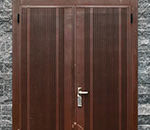No matter how good you are or, conversely, how new you are, there are certain mistakes that all photographers make–yes, all of them! Don’t believe me? Take a look at this compilation of five mistakes that photographers make by Tony and Chelsea Northup. Luckily the Northups give tips for avoiding the mistakes as well:
Everyone makes mistakes, but it’s sort of comforting to find out that others make the same mistakes we do. You’re not alone in forgetting your SD card or not checking your settings or even forgetting to remove the lens cap off. (OK, who hasn’t done that at least once??) It’s even more comforting to know that others have also found workarounds for these common faux pas.
1. Overdone editing
If you do any post-processing at all then you’re probably guilty of this one. Our brains acclimate pretty quickly to whatever new “normal” we’re creating in our photos, so much so that making things pop can morph into making things explode without us ever realizing it.
The Northrups’ suggestions? First off, take a breather. Don’t post your newly edited photo right away but come back to it a few hours later or even the next day. This will give your brain a chance to return to “normal.” Second, consider backing everything down by 20 percent after you’re finished editing. Chances are, it’ll look just fine.
2. Forgotten gear
If you’re serious about photography or even just a hobbyist you’re certain to have succumbed to this faux pas more than once. Who hasn’t forgotten an SD card at least once? Or their charger? Or the quick release plate for their tripod?
The Northrups’ suggestions start with the obvious–have a checklist, create a routine, and set reminders. But then this jewel pops out:
“Never close an empty door.”
If I hadn’t figured this out when I first changed cameras and was back to just one SD card for a while, I would never have had a card on me. It prevents the “take the camera and run” (without your card or battery) syndrome, which can hit the best of us. Of course, there’s still the rare person who uses cables or WiFi to transfer their images to their computer, but for the vast majority of us–the combination of extra cards and never closing an empty door will pretty much ensure that you always have at least one card on you.
3. Unchecked settings
This probably won’t affect you if you shoot in auto, but for the rest of us–who hasn’t gotten frustrated and taking a shot, only to realize that you still had the bracketing on or that your ISO was still cranked? Mirrorless cameras help a little with this because “what you see is what you get” in the viewfinder, but even that doesn’t help much if you switch between HDR and single exposure or you’re expecting continuous focus mode but you left your lens in manual focus mode. Or leaving the camera in 2-second delay mode when you need to capture something immediately.
Unfortunately, there aren’t any ground shaking solutions for this one. Basically, you’ll just need to program yourself to always check.
4. Time management
This one isn’t much of a problem for those doing candid and/or street photography but just about everyone else has run into this somewhere in their photography life. Whether it wasn’t getting to a location in time to set up before the crowds or overestimating the time you had for the golden hour, great location photography needs great planning. That’s why a lot of landscape tutorials really emphasize scouting well before the time of your shoot.
5. Warped self-esteem
The greatest mistake, according to the Northrups, is having warped self-esteem. Both the “I’m not good enough” side of the spectrum and the “my photography rocks!” side of the spectrum can get you into trouble. Here the inverse self-esteem versus ability ratio tends to be true: the better you think you are the less likely it is that you’re as good as you think you are. Put otherwise, the more you think you know, the harder it is to learn—or to rate your abilities accurately.
On the one hand, you need to have good enough self-esteem to put your work out there, keep experimenting, and take critical feedback. On the other hand, it’s important to not get too big of a head. Part of the solution is finding some way to get relatively accurate assessments of your ability. The more high-end feedback you can get, the better you’ll become. Seek out folks in the business you trust and get their opinions. And seriously, learn to crave honest feedback on how you can improve. Hearing that your photos are beautiful feels good, but getting the nitty gritty on what skill you need to focus on next is priceless.
Know of any other common mistakes photographers make that aren’t on this list? Let us know!
Like This Article?
Don't Miss The Next One!
Join over 100,000 photographers of all experience levels who receive our free photography tips and articles to stay current:







Leave a Reply